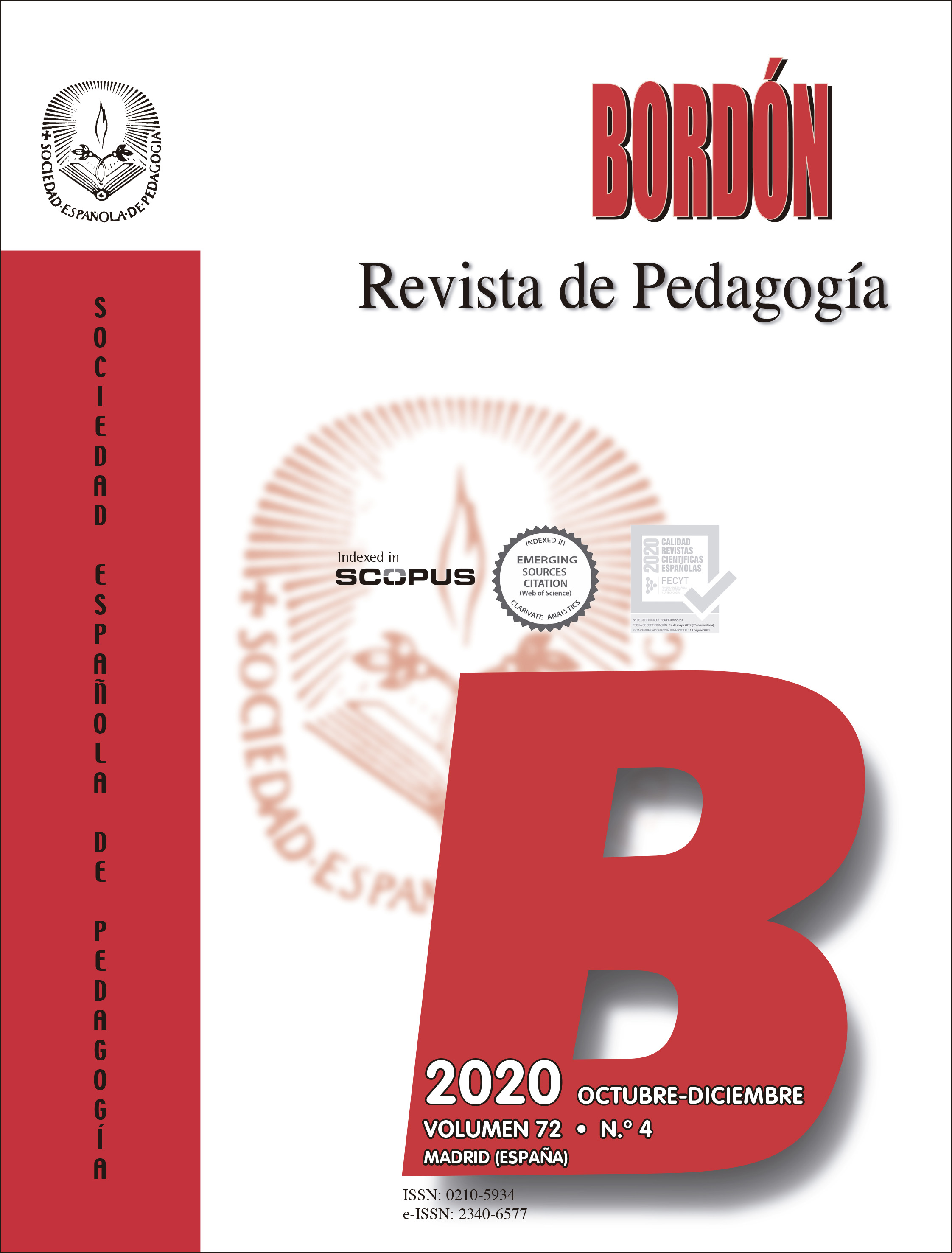Personal and professional Secondary Education teachers’ satisfaction: an analysis of academic performance from the 2015 PISA data
Main Article Content
Abstract
INTRODUCTION. The study of teacher job satisfaction and its contribution to improving the quality of the teaching-learning process has been the subject of debate for some years. Various studies have attempted to investigate this relationship, but the empirical evidence is inconclusive regarding this question. METHOD. The aim of this paper is to describe the personal and professional satisfaction of Spanish teachers in the Secondary Education stage, in order to verify its possible relationship with the academic performance of their students, using the data obtained from the study of the 2015 PISA International Programme for Student Assessment for Spain. The sample is made up of 4.286 teachers and 6.736 students from 201 schools. In order to analyse the data, linear hierarchical models have been used, including in them the contextual effects linked to the High School or educational centre, with the individual effects linked to the student. RESULTS. The results indicate that the personal and professional satisfaction levels of the teachers are high. Likewise, in terms of its relationship with student performance, we can point out that professional satisfaction has more influence as a predictor of performance than the
personal satisfaction of the teacher. DISCUSSION. The results obtained suggest the need to widen the scope of the study and to go in depth in both the extrinsic labor factors, which consider the specificities of the different educational organizations, and the intrinsic factors, related to personal and professional teacher´s development.

